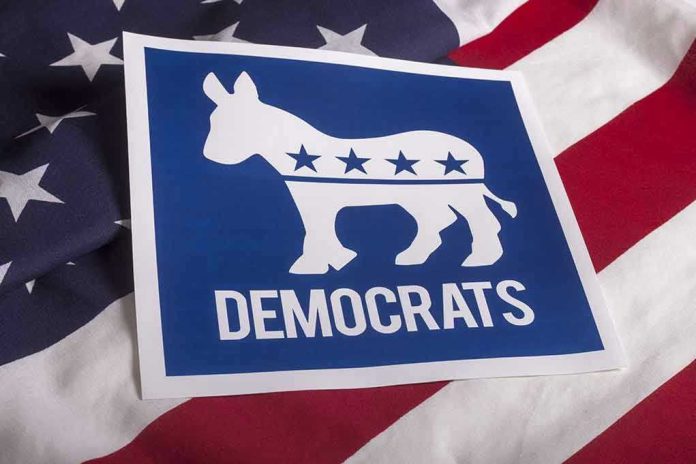
A Democratic intra-party conflict reveals deep fractures, delighting Republicans eager to exploit the chaos.
Story Highlights
- Senator Cory Booker challenges Chuck Schumer’s leadership, sparking public Democratic infighting.
- Booker’s move is seen as a call for generational change within the Democratic Party.
- The public nature of this challenge is unusually bold, breaking from traditional Democratic unity.
- Republicans seize on the Democratic rift to portray them as disorganized and ineffective.
Booker’s Bold Challenge to Democratic Leadership
On November 18, 2025, Senator Cory Booker publicly called for the removal of Senate Majority Leader Chuck Schumer. This bold move has broken with Democratic tradition, which typically values internal unity.
Booker’s call is seen as a push for generational change, exposing deep rifts within the party and signaling a broader trend of public infighting among Democrats.
The Democratic Party has long prided itself on unity, especially in contrast to Republican infighting. However, this recent challenge signifies a significant shift. Booker’s history of clashes with fellow Democrats over issues like police reform has highlighted growing frustrations with current leadership.
His public challenge to Schumer underscores the urgency for change felt by many younger Democrats.
The Stakes for Democrats and Republicans
Booker’s challenge has sparked open debate within the Democratic caucus. While some Democrats express support for new leadership, others defend Schumer, highlighting the party’s internal division.
Republicans have seized the opportunity to portray Democrats as disorganized, which could impact the Democratic Party’s negotiating leverage in Congress and public perception ahead of future elections.
Booker’s move is framed as not only a wake-up call for the Democratic Party but also a strategic risk. The public nature of his challenge is unusual and reflects dissatisfaction with current leadership amid recent electoral setbacks.
With no formal leadership vote scheduled yet, the situation remains fluid as Democrats grapple with internal dissent.
Potential Impacts and Future Implications
In the short term, Democratic disunity could weaken their negotiating position and shift media focus from policy to party infighting. Long-term implications may include possible leadership changes and lasting damage to party cohesion.
The event sets a precedent for more public challenges to party leadership, which could either invigorate or further divide the party.
The consequences of this infighting extend beyond party lines, affecting Democratic senators, activists, donors, and voters seeking stability. The ongoing situation underscores the challenges facing the Democratic Party as they navigate internal and external pressures during President Trump’s second term.
As the party continues to grapple with these challenges, the broader political landscape remains uncertain, with potential implications for both legislative progress and future electoral outcomes.
Sources:
Booker Signals the Left Can Eat Its Own, and the Feast Has Begun
Democrats spar on Senate floor as Booker clashes with Cortez Masto and Klobuchar
Podcaster calls Cory Booker a Democrat disruptor after leadership challenge
Leading Senate Democrat tells Fox News it’s time for new leadership




